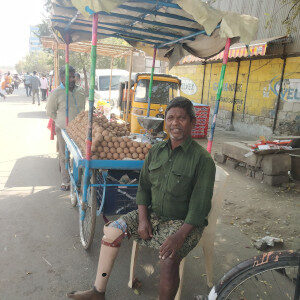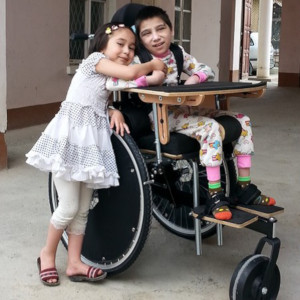

Azizai’s story sheds light on the challenges that individuals with disabilities face in certain cultural contexts. Azizai, a young woman with cerebral palsy, lives with her family, and due to her condition, is unable to work. While she receives a small entitlement from the government, it is often not enough to cover her daily expenses, even with her family’s support.
Azizai’s family faced a mixture of challenges, including cultural attitudes towards daughters and individuals with disabilities. In their culture, sons are often considered more important than daughters, and parents may prefer having sons over daughters. Azizai’s mother experienced difficulty hearing that she was going to give birth to a disabled baby girl, but thankfully she was not forced to abort Azizai.
During the early portion of Azizai’s life, she relied on a small baby stroller for mobility. However, this stroller failed to provide adequate head support, which led to Azizai being restricted to activities in her yard. In their culture, this was considered shameful.
Despite these challenges, Azizai’s family continues to support her and work to provide her with the best possible care. However, they face financial difficulties due to Azizai’s condition and the limited support provided by the government. This highlights the need for greater support for individuals with disabilities in these cultural contexts.
Overall, Azizai’s story emphasizes the importance of creating inclusive communities and providing support for individuals with disabilities. It also highlights the need for cultural attitudes to shift towards greater acceptance and support for individuals with disabilities, regardless of gender. Through education, advocacy, and increased support, we can work towards a more inclusive and equitable world for all individuals, including those with disabilities.

